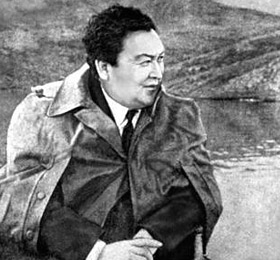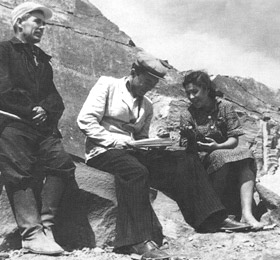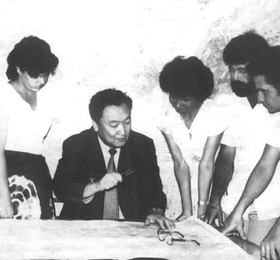Yernur Nurambek
Specialization: Electrical and Computer Engineering. Internship: Polytechnic University of Milan, Italy.
 Yernur Nurambek, a graduate of the Faculty of Electrical Engineering and Computer Engineering from Almaty. He’s 23. And today he is a master’s student at the Polytechnic University of Milan. In 2020, a Kazakhstani won a grant for a scientific internship in the competition of the Shakhmardan Yessenov Foundation, but due to the pandemic he was able to do it only last fall. Yernur, who is fond of politics and marathon running, tells how to win the competition in this article.
Yernur Nurambek, a graduate of the Faculty of Electrical Engineering and Computer Engineering from Almaty. He’s 23. And today he is a master’s student at the Polytechnic University of Milan. In 2020, a Kazakhstani won a grant for a scientific internship in the competition of the Shakhmardan Yessenov Foundation, but due to the pandemic he was able to do it only last fall. Yernur, who is fond of politics and marathon running, tells how to win the competition in this article.
Why did you choose this particular specialty when applying?
I chose electrical and computer engineering because I had been interested in physics since my school years and I understand that specialists in this field would always be in demand. However, during the pandemic, I realized that succeeding in something does not mean loving it. After much thought, I decided to take up the management of engineering projects.
Why do you think you won the competition of the Yessenov Foundation?
Winning it has been my goal since my freshman year. I was surrounded by ambitious people at the university. It was their success stories and support that motivated me to apply. Each of us, the finalists of the competition, deserved to win. But I think I stood out for my ability to adapt quickly, work in a team and make compromises.
Where did do your internship?
I worked at the LAMBDA (Laboratory of Measurements for Biomedical Applications) at the Polytechnic University of Milan. Its main task is to develop a therapeutic platform using a laser to remove localized forms of cancer. My supervisor was Professor Paola Saccomandi. We created a platform for measuring the temperature at certain points of the tissue. This, in turn, helps to investigate the level of ablation (destruction) of the tumor.
What exactly was your part of the job?
After 10 days of quarantine, I studied a new method of measuring temperature using optical fiber sensors. The methods that are available now are accurate, but they take a lot of time and are very expensive, which is why they are practically not used in clinics. I repeated the basics of electrodynamics and studied fiber-optic technologies, as well as the basics of cancer treatment. I have read more than 30 scientific papers on this topic. I learned to use a tool to measure the temperature of the tissue, to collect data from sensors and analyze them.
What have you achieved in Italy?
We continued collecting data for almost a month. I managed to test two models. We compared the results and came to the conclusion that it is impossible to use a limited number of sensors. The team continues to solve this problem, looking for new methods of data collection. It would seem that the results are negative, but the study helped the team understand where to move on.
And how did the internship prove useful for you personally, Yernur?
The laboratory is located in the best technical university in Italy and has a cool infrastructure, and all its employees are highly qualified. I gained knowledge in a field that I hadn’t even heard of before – thermal ablation of tumors. I got a good charge of inspiration: it means a lot to work on creating life-saving technologies.
And besides science?
Milan, where I lived and worked, I really liked: the diversity of cultures, delicious and affordable food, dynamic and progressive youth. In an hour by train, I could get to mountains or lakes known all over the world, visit Florence, Munich or Venice. My apartment was located a stone’s throw from the university, I made friends with bachelors and undergraduates from Colombia, Argentina, Egypt, India and Belgium, who lived nearby. We often had dinner together, walked around autumn Milan. I think I’ve learned to live like this.
What can you advise the future winners of the competition?
If you won the competition, then you deserve it. Don’t let impostor syndrome get in your way. When you are looking for laboratories for an internship, consider several options, and be prepared that the plans may change dramatically. Use your “connections” in the scientific world to find an internship, this will help instead of sending hundreds of emails to everyone in a row, for example, to send just ten. Communicate with other winners and help each other! No matter how different you are, you will all have a common experience, and it is much easier to solve problems together. Focus on your own work, but don’t forget to try new things while you’re in another country.
15.04.22, Stories
Seen by: 829





